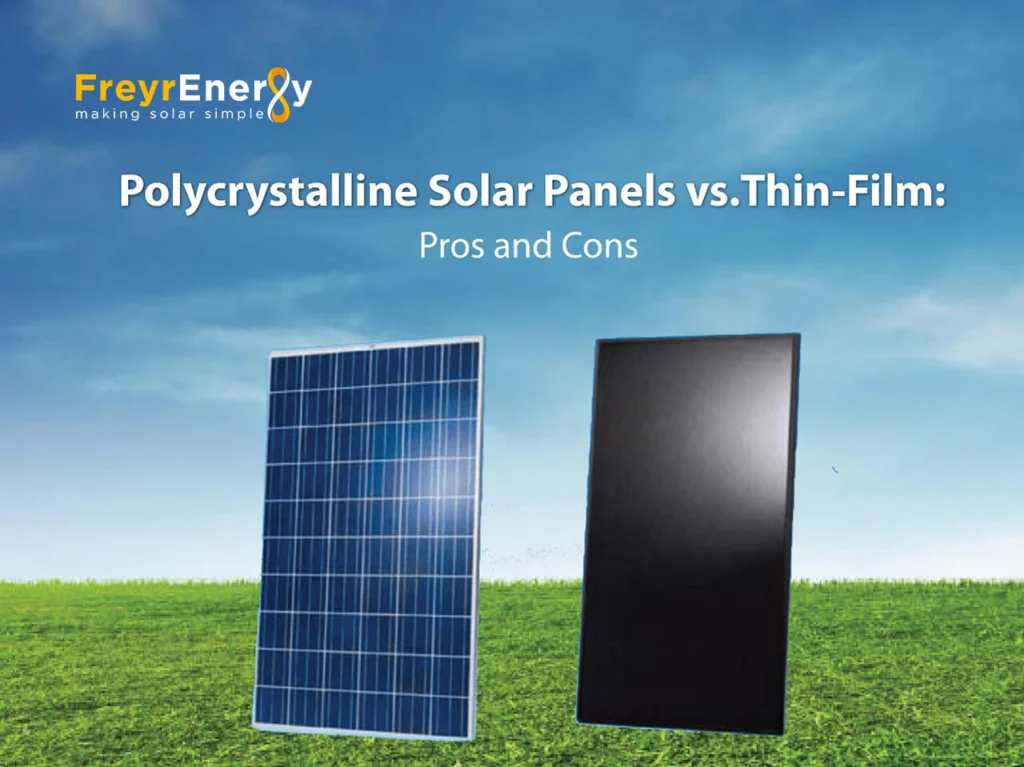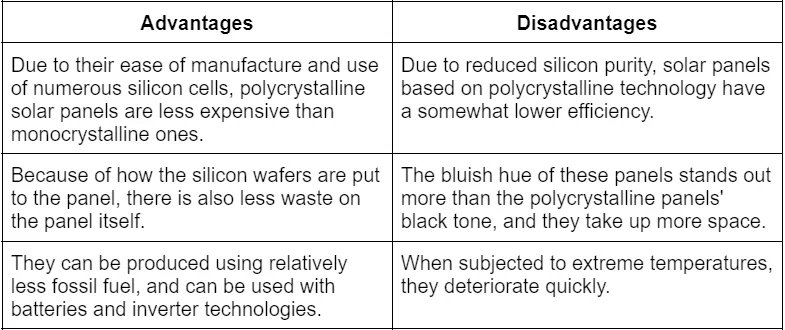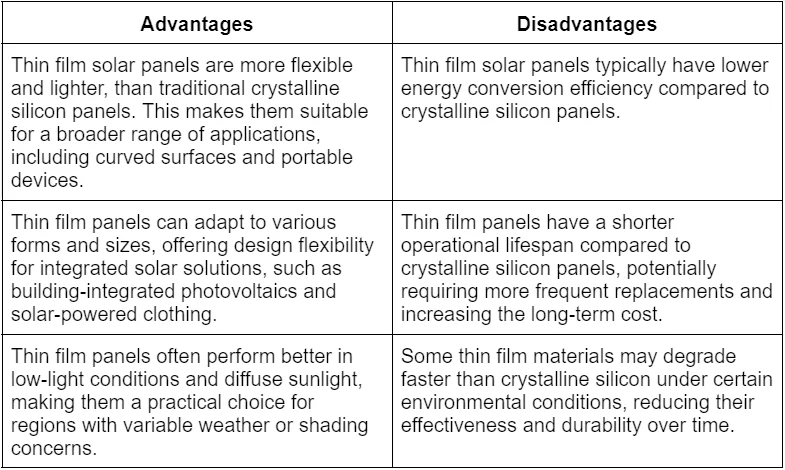Today, the concept of clean energy is becoming widely available and affordable. As a result, there is an increasing demand for solar energy due to government subsidies, environmental awareness campaigns, renewable energy objectives, and lowering panel prices. More than 155 gigawatts (GW) of solar energy capacity have been installed nationwide as a result, which is enough to power 27 million homes.
Solar panels have grown at an average yearly pace of 24% just in the last ten years. A solar panel transforms sunlight, using energy particles called “photons,” into electricity. This electricity can further be utilized to power electrical loads.
Solar panels are available in a variety of shapes and sizes. It also comes with options for efficiency and price, including monocrystalline, polycrystalline, and thin-film.
In this article, we are going to talk about polycrystalline solar panels and thin-film solar panels in detail. We will also focus on the factors one should keep in mind while purchasing solar panels.

What are Polycrystalline Solar Panels?
Solar cells, also called photovoltaic (PV) cells, are non-mechanical devices that turn sunlight directly into electricity. Solar panels that contain many silicon crystals within a single PV cell are known as polycrystalline or multicrystalline solar panels.
These silicon crystals inside each cell, restrict the movement of electrons within the cells turning sunlight energy into electricity by absorbing it.
The table below throws light on the advantages and disadvantages of polycrystalline solar panels.

What are Thin Film Solar Panels?
Thin-film solar panels are a type of solar panels with photovoltaic technology that utilises a thinner semiconductor material layer as compared to polycrystalline panels. These panels are typically more flexible and lightweight. This makes them suitable for unique applications such as building-integrated photovoltaics and portable solar devices.
Thin-film panels can be made from various materials like cadmium telluride, amorphous silicon, or copper indium gallium selenide. This offers different efficiency levels and cost structures. While they are less efficient than polycrystalline panels, thin-film panels are known for their versatility and can perform well in low-light conditions
Let’s now look at the thin film solar cells advantages and disadvantages.

Polycrystalline Vs Thin Film Solar Panels
Due to global concerns about the economy, inflation, and the environment, everyone is looking for technology that is low-cost, highly efficient, and has a high electrical output.
The majority of solar for-home energy systems currently available fall into one of three categories: monocrystalline solar panels, polycrystalline solar panels, or thin film solar panels. Due to their efficiency, thin film and polycrystalline solar panels are the most widely used.
But what are the key differences between polycrystalline and thin film solar panels that should be taken into account?
Let’s check out.

Remember that these variables can change depending on certain product brands and technological advancements within the polycrystalline and thin film categories.
Factors to Consider While Purchasing Solar Panels
As long as the sun is rising, you can use solar energy to produce electricity. Solar energy is naturally renewable and replenishable. Utilising solar energy prevents the release of any hazardous materials in the environment.
Over the past few years, there has been a significant evolution in consumer standards. The majority of people no longer settle for the cheapest product or service that is available; instead, they go through comprehensive research before making a purchase today. If you’re planning to install solar for your home or in your organization, there are several criteria you’ll need to consider to make the best investment possible. Some of the most important factors are discussed below:
Efficiency of the solar panel system
Solar panel efficiency denotes their ability to convert sunlight into electricity. Higher-efficiency panels generate more power from the same sunlight, making them ideal for limited roof space. Lower-efficiency panels are less effective and require more space. The choice depends on space, budget, and energy needs.
Cost
Cost is a critical factor in purchasing solar panels. It’s essential to strike a balance between upfront expenses and long-term savings. Consider the return on investment (ROI), including government incentives and energy bill savings. A thorough cost analysis should factor in installation, maintenance, and any additional components for a comprehensive financial assessment.
Type
As discussed earlier in this article, solar panels come in various types: monocrystalline, polycrystalline, and thin-film.
- Monocrystalline panels are highly efficient but costly.
- Polycrystalline panels offer a balance between efficiency and affordability.
- Thin-film panels are flexible and lightweight but less efficient. Choose the type that best aligns with your space, budget, and energy goals.
Installation
Selecting a reputable installation company is crucial while purchasing solar panels. Check for certifications and experience to ensure the solar panel installation is done correctly. A well-installed system maximizes efficiency and longevity, ensuring your solar panel performs as expected and complies with local regulations and safety standards.
Energy needs
Monitoring and control systems in solar panels allow you to track energy production and manage your system effectively. Consider whether such features are important to you, as they can help optimize energy generation, detect issues, and provide data for system maintenance. These systems enhance your overall solar panel experience.
To Sum Up
In the quest for sustainable energy, choosing the right solar panel technology is an important decision. Polycrystalline and thin-film solar panels each have their advantages and limitations. Polycrystalline solar panels offer higher efficiency and durability and are ideal for limited-space applications.
In contrast, thin-film solar panels, though less efficient and durable, present flexibility and cost advantages. To decide between the two, consider your specific needs, budget, and available space.
Regardless of the choice, embracing solar power is a significant step towards cleaner, more sustainable energy production and a greener future.
